Lindy Larsson, actor and singer, reveals the shocking truth of how Romani people have been treated in Sweden
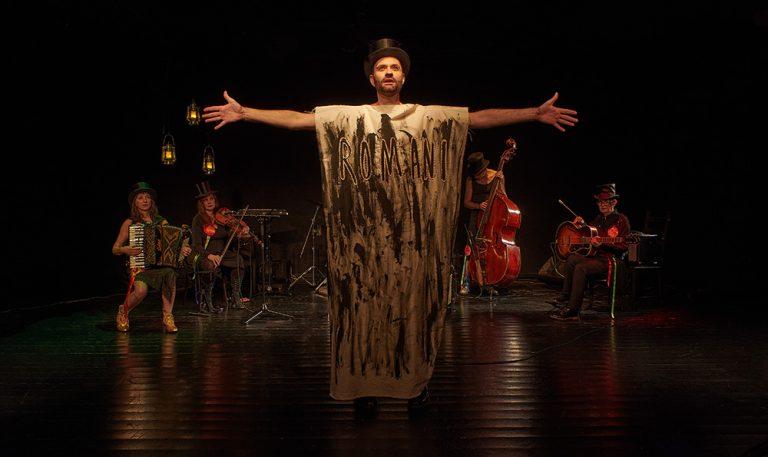
"I ask my father if I could read the documents, I want to know, but I'm not prepared for what's there,“ says the actor and singer Lindy Larsson, who is standing with his Bon Bon Band onstage at the Gorki Theater in Berlin on World Romani Day. "My father was eleven years old when he was placed in an orphanage. I read about physical abuse. I read that my father was so badly beaten when he was twelve years old, by one of the caretakers, that he was hospitalized for three weeks. And after that, he suffered from epileptic attacks and convulsions.“ And the enumeration continues.
This biography of Larsson’s father illustrates how the children of Romani people in Sweden were treated until the mid-1970s. Through his performance, Larsson is problematizing not just the fact that Sweden is usually spoken of as a country with liberal values, but also that there exists another side of the coin which has exactly the opposite story to tell: State discrimination, racism and violence.
Larsson’s family requested the documents about his father when they wanted to file a request for compensation to which his father was entitled. “A few weeks later, my sister calls me, I can hear she´s crying. She says: ‘He got the compensation!’“ While that may sound like satisfaction, it’s clear Lindy’s father will live with the consequences of that ill-treatment for the rest of his life, like many other victims.
Larsson interweaves music and spoken word into an evening that takes the audience through places which hurt, which are still unhealed, and which are at risk of further trivialization by the current Swedish government and others. Based on the story of his own family, he presents the widespread treatment of Romani Travellers in Sweden, not just in recent decades, but for several centuries prior.
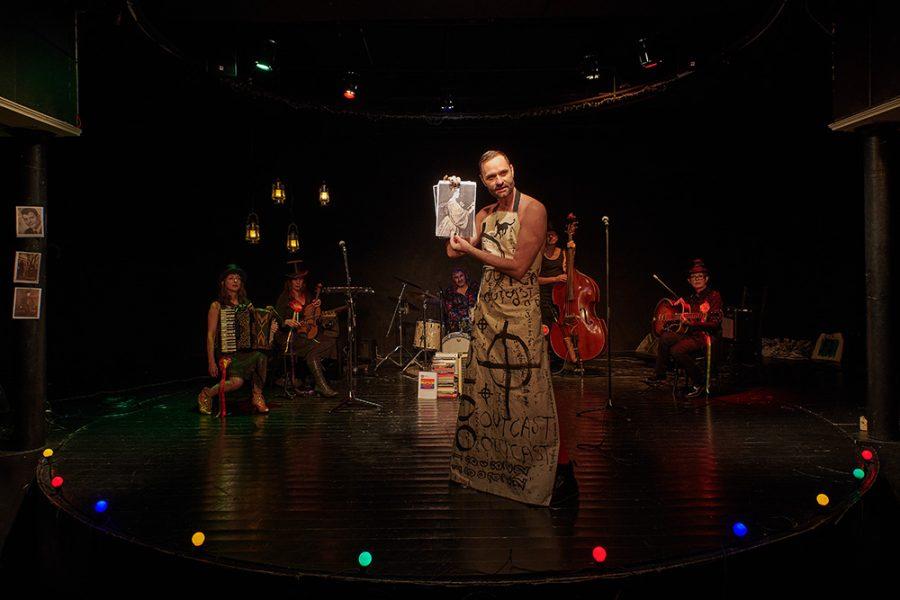
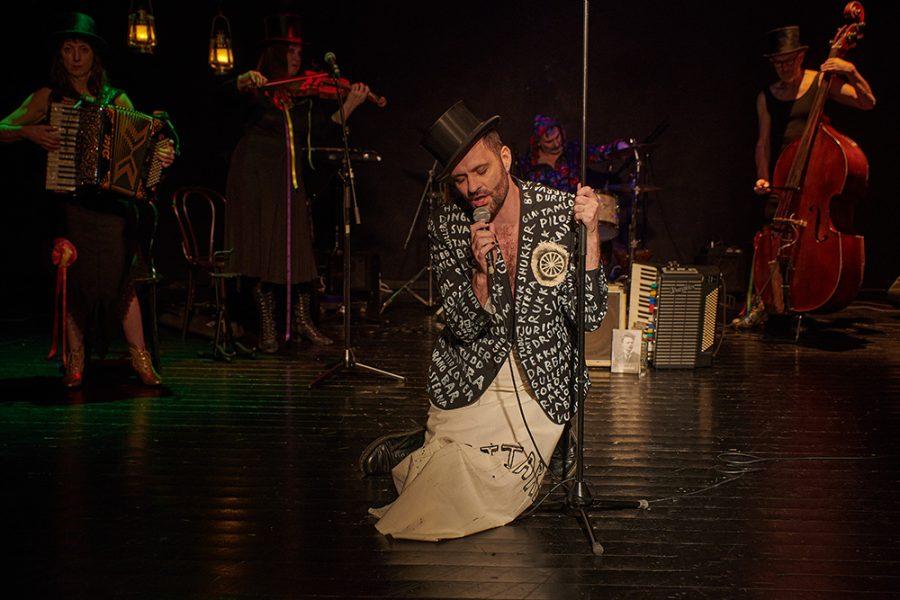
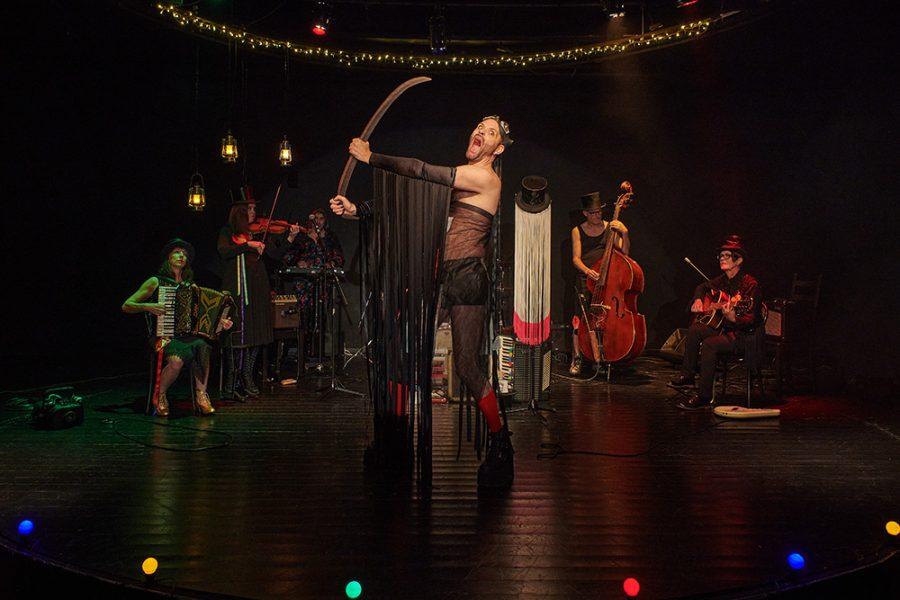
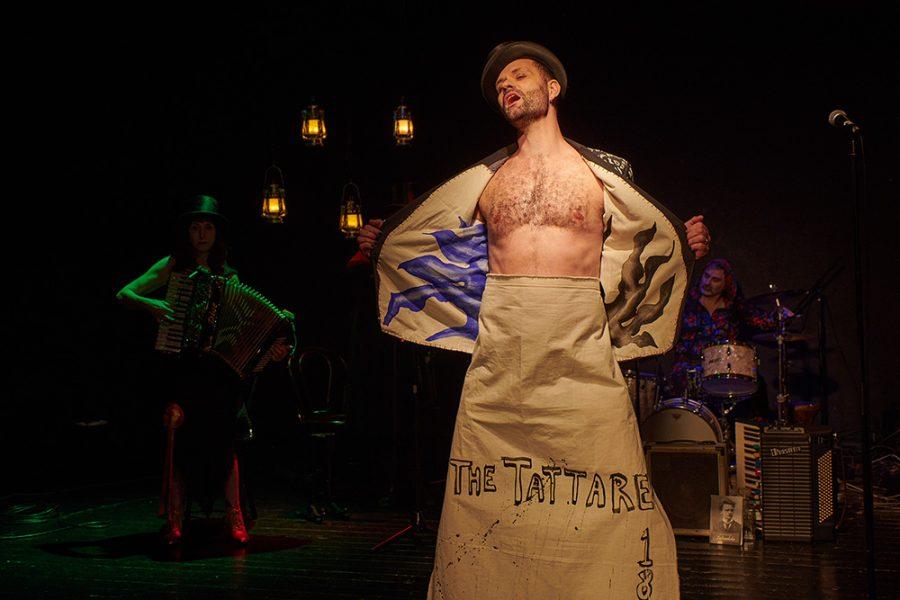
“Or maybe I should begin big. 1974, the year I was born. Because it was big, for me. It was also the year ABBA won the Eurovision Song Contest, the whole shebang, and that was big, for them. It was also the year it was decided it wasn’t allowed anymore to sterilize us Romani Travellers, and that was big, for us.“ He is referencing many years of a practice that was run systematically, legally, with the assent of the state.
Larsson’s performance also focuses on the anti-Roma novella Tschandala by the well-known Swedish writer August Strindberg. For example, he cites a meeting between the novella’s protagonist and a Romani girl to whom he feels attracted and whom Strindberg describes, through the protagonist, as a person who is “unclean, inferior”, whom he sees as a “monster” and an “animal” who is “loathsome” to the touch, and how “he felt everything had become dirty, his room, his body, his soul.“ Larsson’s selected passages document stereotypes about Romani people which still resonate today and lead to their dehumanization so that these patterns of racism can be more easily applied. And the fact that some continue to stand up for this novella without any critical reflection on it continues. The proof is that recently an ultra-right publisher decided to republish this controversial work.
“We Romani Travellers were even a Swedish film genre. Tattarfilmer. Tattar movies. ‘Gypsy’ movies. And we were very popular. We never played the main role, it wasn’t about us, we just got the minor – but still important – role as the bad example, the threat, the counter-image that defined who the Swedes were.“ He is alluding to a number of stereotypes about the Roma which were spread through such cultural artefacts in order to make the majority society feel “better”. “We were everything else, what no one wanted to be,“ adds Lindy Larsson.
Lindy’s main motivation for this performance is that he wants to give his minority a voice, to make them visible through himself, the content of his show, his multilingual songs, personal testimonies and literary examples of the denial of humanity. The performance conveys what has happened – and is still happening somewhere – while expressing the wish that it will never happen again. He succeeds very well in making a lasting impression, which is necessary for this to never happen again.
All of the art forms are connected, with the songs providing breaks so viewers can take a breath, process the previous part, and look inward to their own beliefs and prejudices. At the same time, Lindy leaves everybody enough room to form their own opinion. He uses humor where appropriate, but never puts down anybody else. He maintains respect throughout, although he clearly rejects any intolerance towards his own minority. Above all, the quote about Larsson’s father’s childhood in an orphanage is the most powerful experience of the evening, moving the audience and gaining their empathy.
The chosen literary work and the passages used from it clearly show what it has been common for others to say in general terms about Romani Travellers, what kind of demonization has been created around them without ever being criticized or stopped. Lindy is able to present all of these subjects in a way that lacks any pathos, is comprehensible, and evokes sympathy. And without that, it would not be possible for the majority society to process this abuse and prevent its repetition.
Like the entire show, Lindy’s thanks convey a message that cuts to the heart and resonates long after the show is over: “I want to thank all of you here tonight. I’d like to thank the summer substitute doctor who changed the decision to sterilize my father, which would have been the end, before it had even begun, for me and my siblings and their children.”